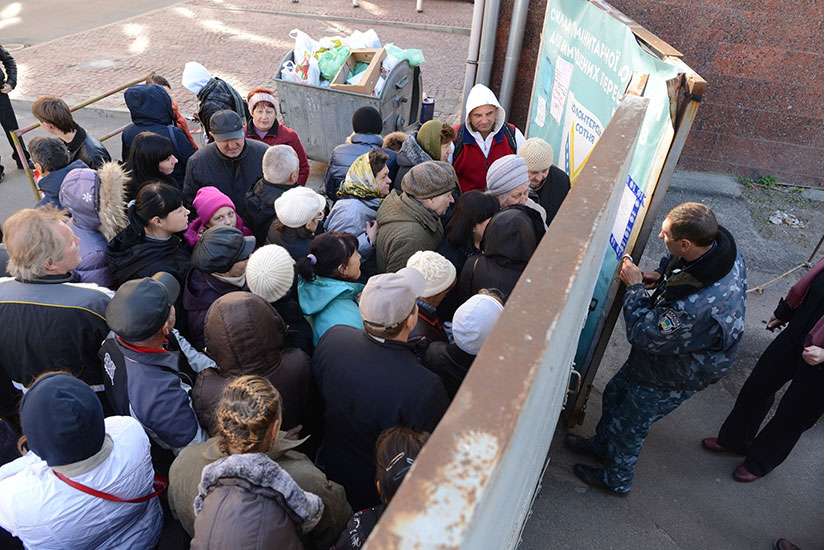The "profoundly deplorable crimes" committed against people because of their religious faith "must be strongly condemned and opposed," said Archbishop Dominique Mamberti, the Vatican's outgoing secretary for relations with states. He has been appointed to be the new prefect of the Apostolic Signature, the Vatican's highest court.
The archbishop spoke at the 21st ministerial council of the Organization for Security and Co-operation in Europe held in Basel, Switzerland, Dec. 4-5.
"We cannot be silent in the face of tens of thousands of Christians who are persecuted and killed worldwide every year, including in areas bordering on the OSCE region," he said.
The archbishop called for "a new partnership of believers and nonbelievers to fight anti-Semitism, intolerance against Muslims and the ever-growing discrimination against Christians, also in Europe, where although there is no organized persecution, there are many forms of intolerance, which manifest themselves in a variety of ways, even in hate-motivated crimes against persons and sacred places."
He told the council Dec. 4 that the "full guarantee of religious freedom cannot be limited to the free exercise of worship" but must include "the public dimension of religion" and the possibility of believers to contribute to society. Freedom of religion includes the freedom of expression and peaceful assembly, he stated.
On the enduring conflict in eastern Ukraine, the archbishop said it is the Vatican's "strong conviction that the best way of resolving the current situation is through dialogue and negotiation." He said the Vatican has been "following very closely and with deep concern the worrying developments" in the country and expressed the Pope's closeness to the people who suffer in the region.
He lamented the use of arms in attempting to resolve disputes as "a sad development" and expressed regret at the loss of life, suffering and grave violations of people's basic rights in the conflict.
He applauded the deployment of the OSCE's special monitoring mission to Ukraine but said the non-implementation of the OSCE's Vienna Document or its Code of Conduct to bring about conditions to resolve the crisis was regrettable.
Referring to Europe's two World Wars in the last century, the archbishop said it must be the OSCE's "moral imperative to avoid, by all possible means, the horrors and the divisions of the past, too often stirred up by senseless and interest-driven propaganda."
The archbishop noted the mutually dependent relationship between security and human rights. "Security cannot be achieved without the protection of human rights," he said. "And, on the other hand, full respect of human rights can be ensured only in a secure environment."


